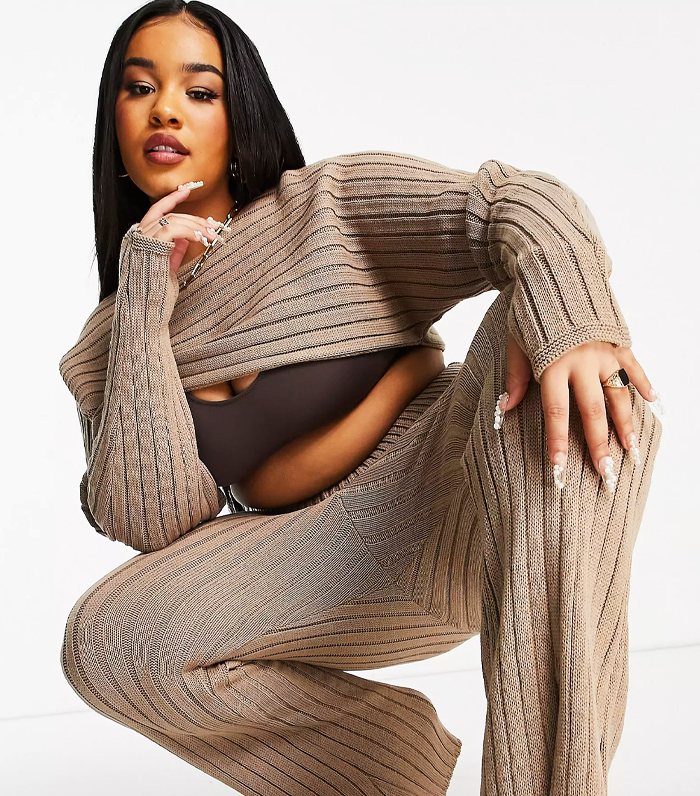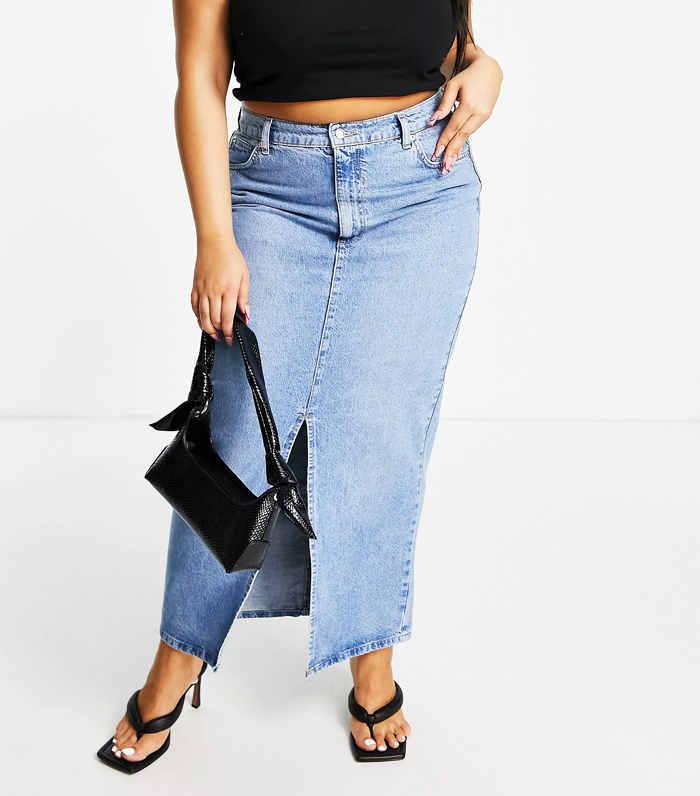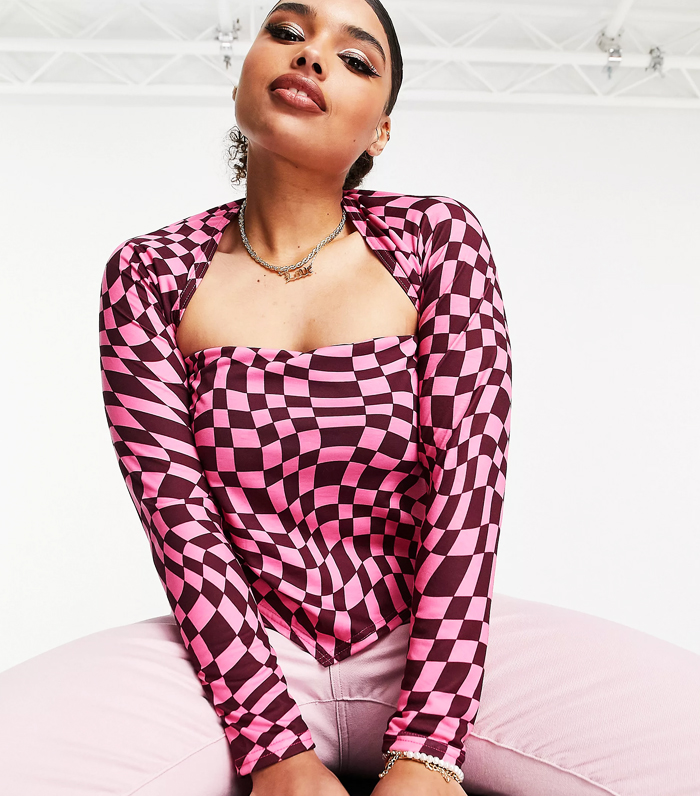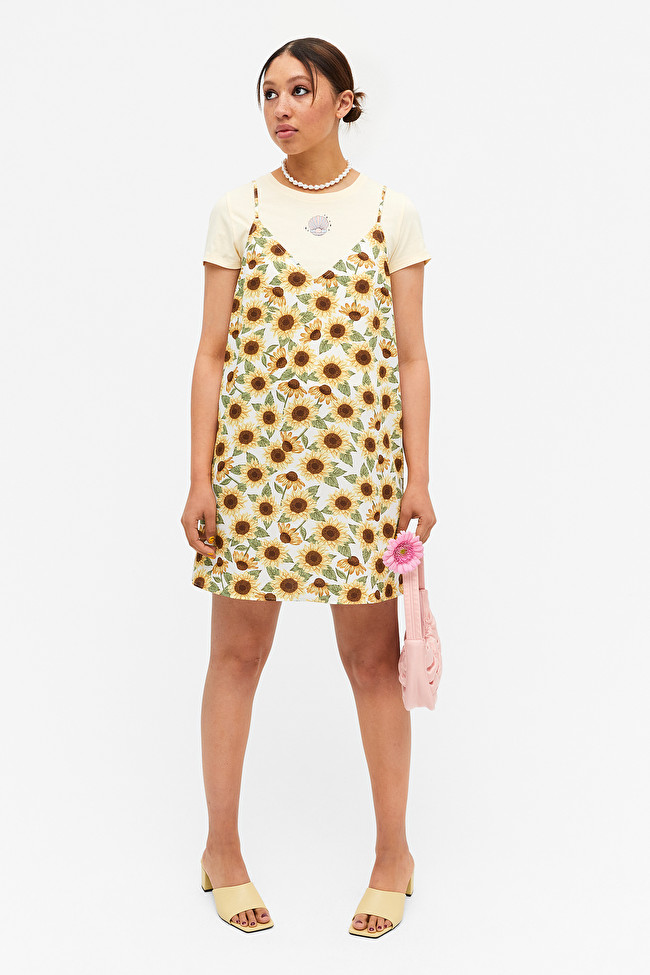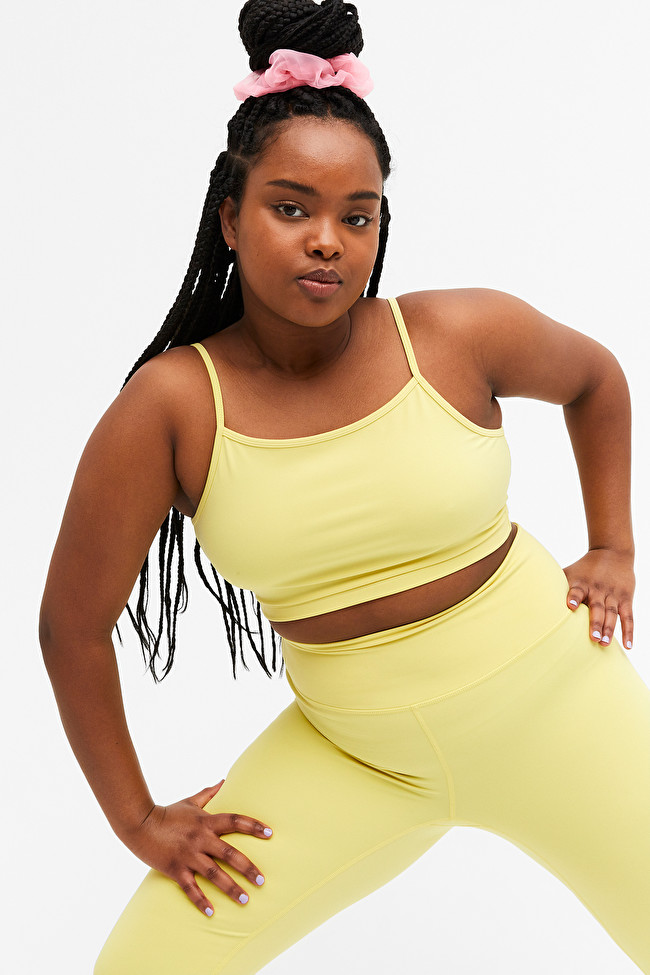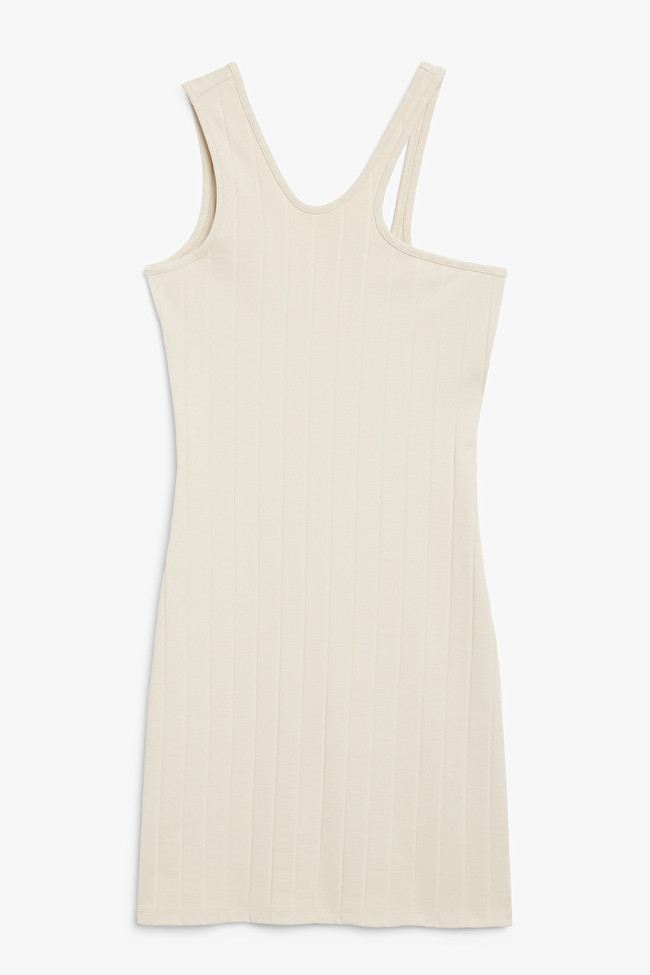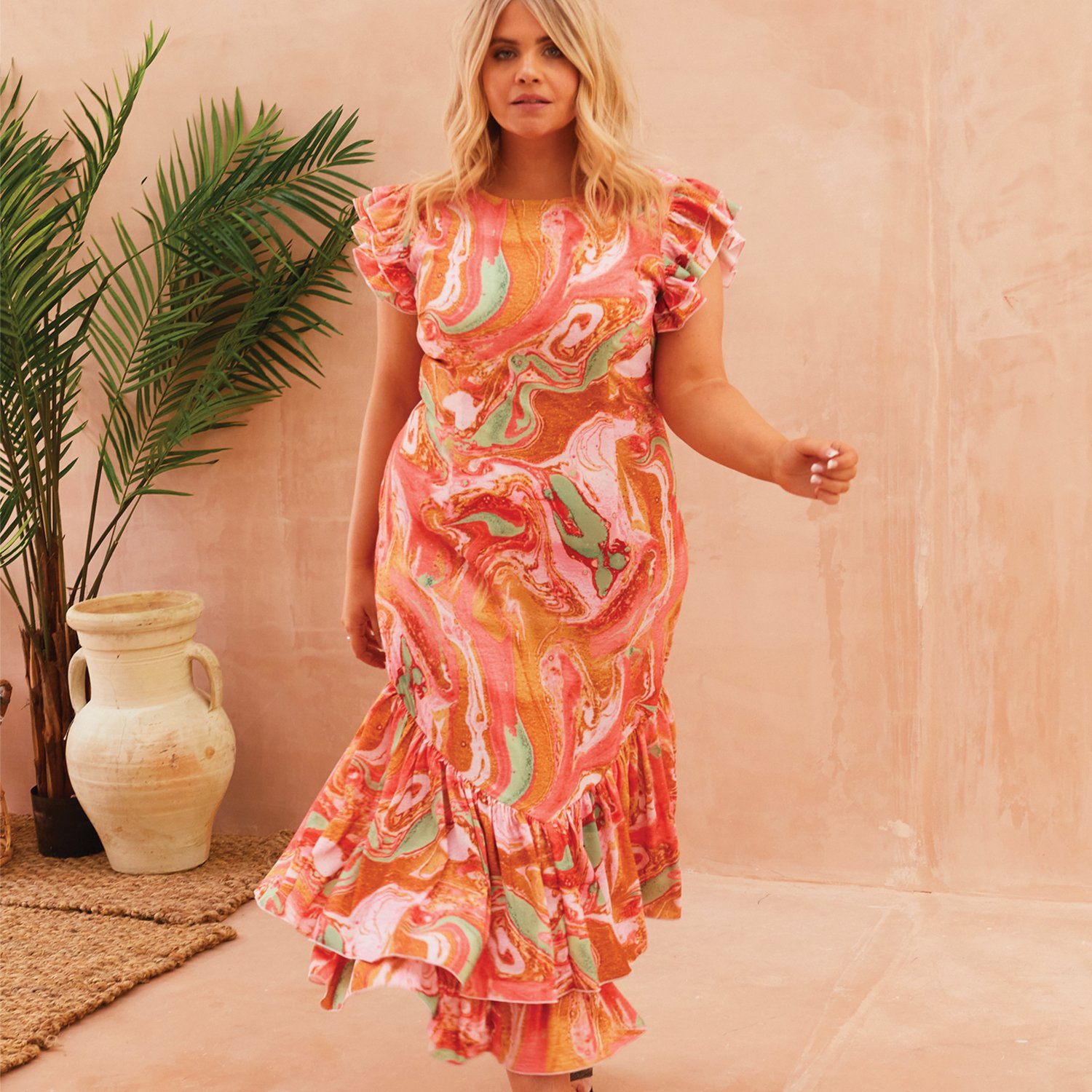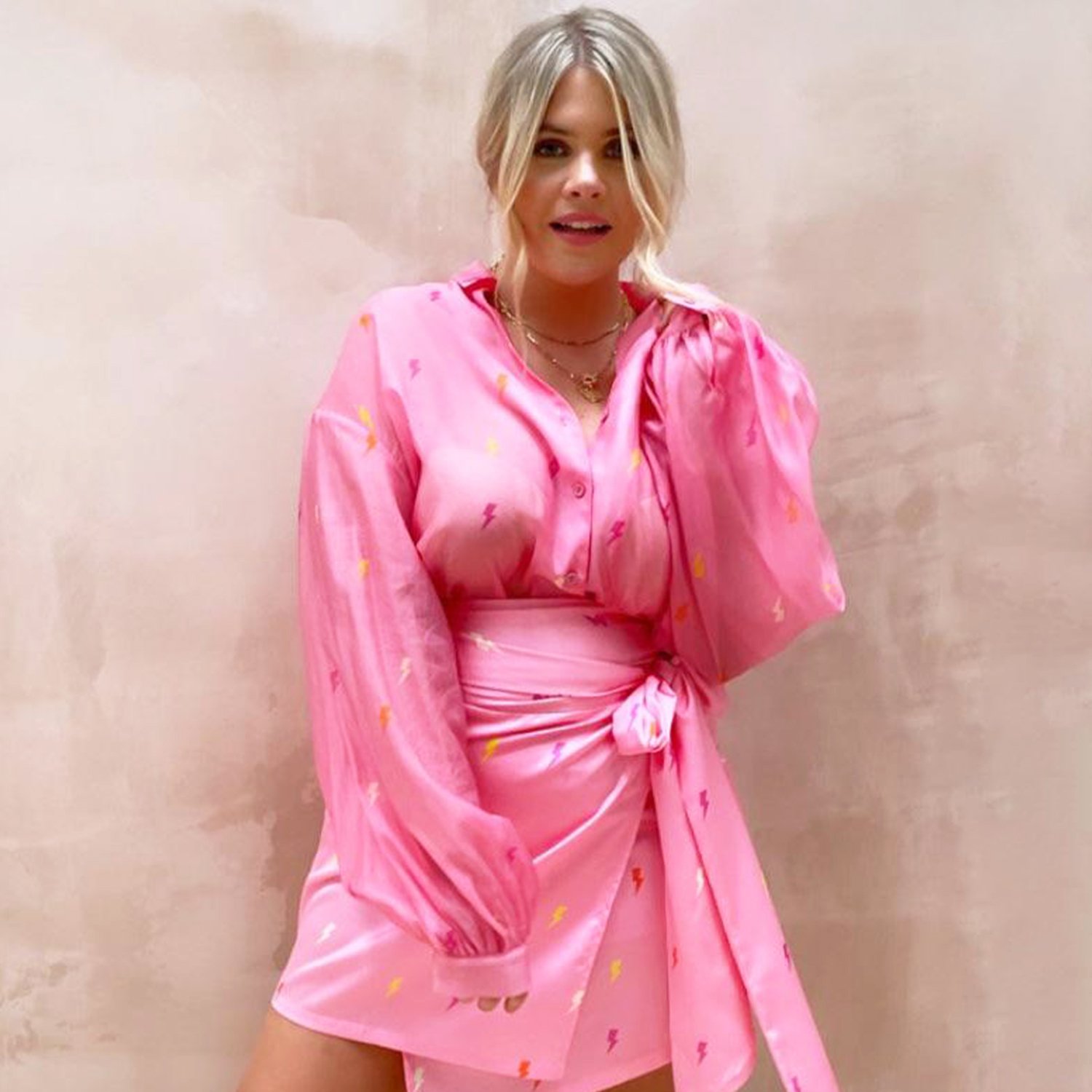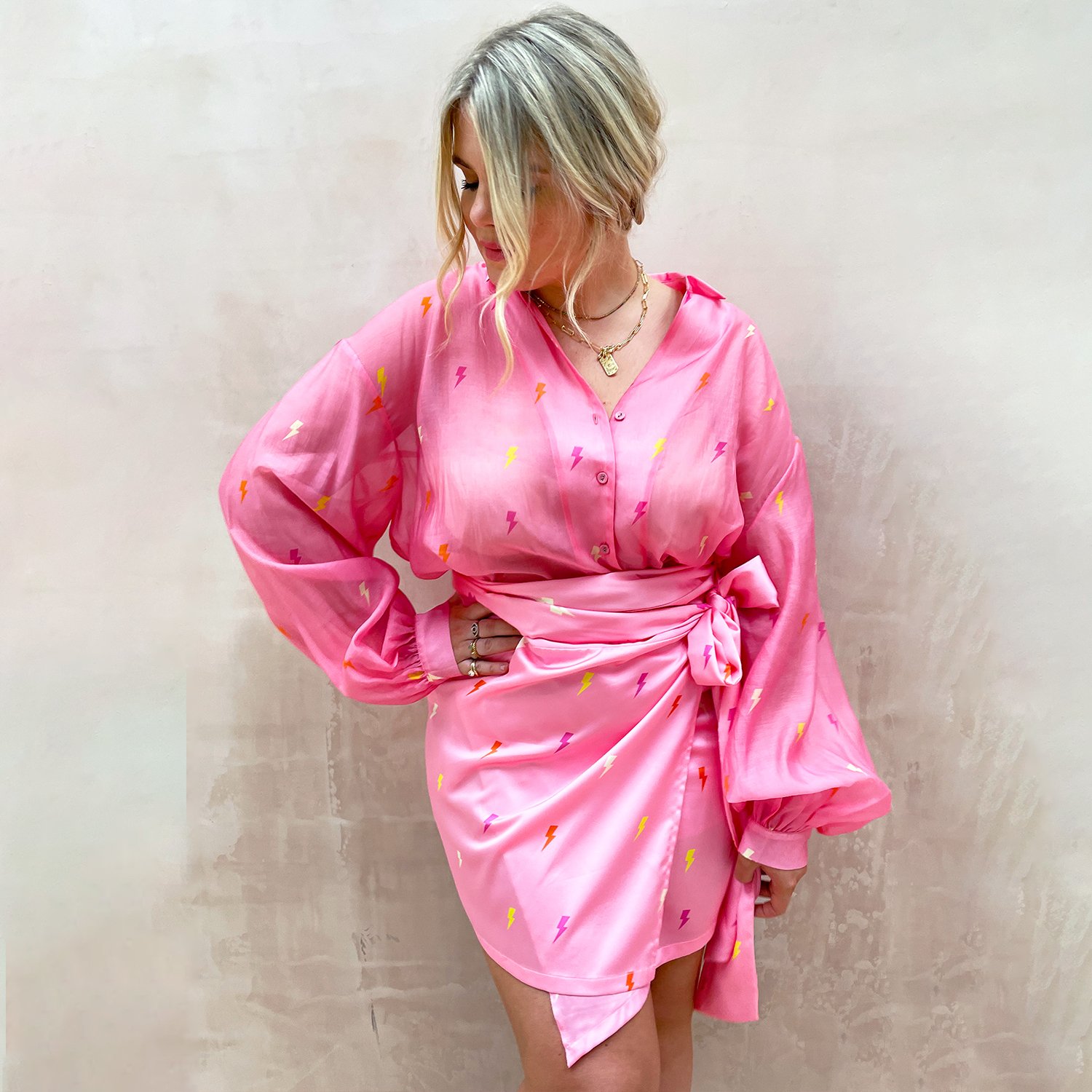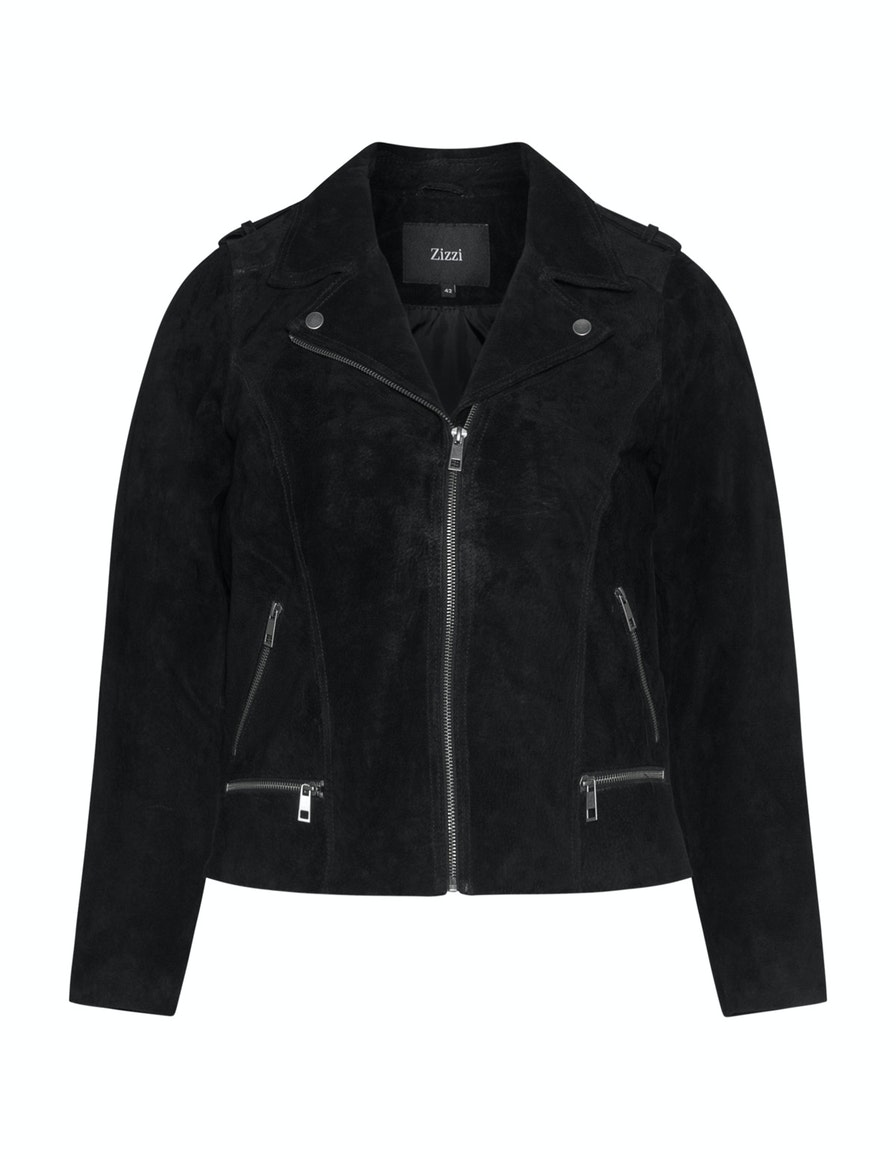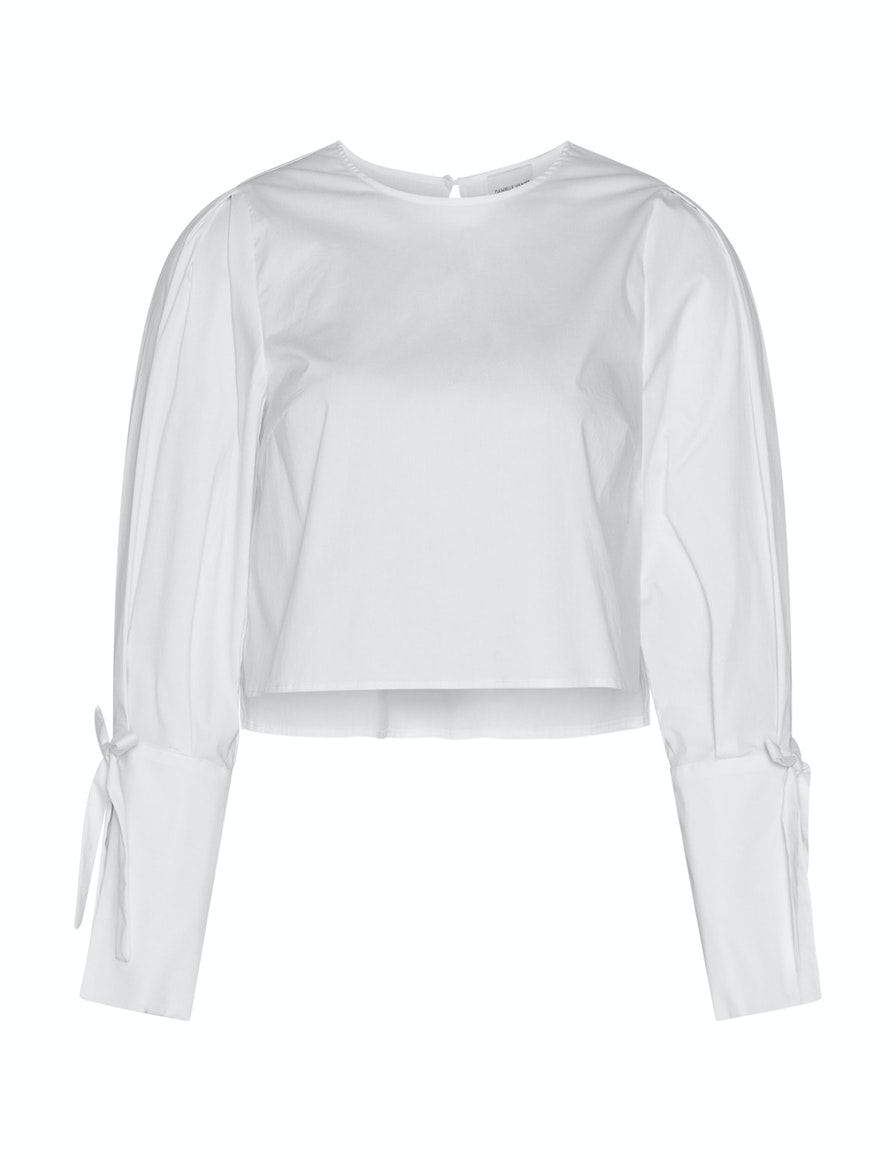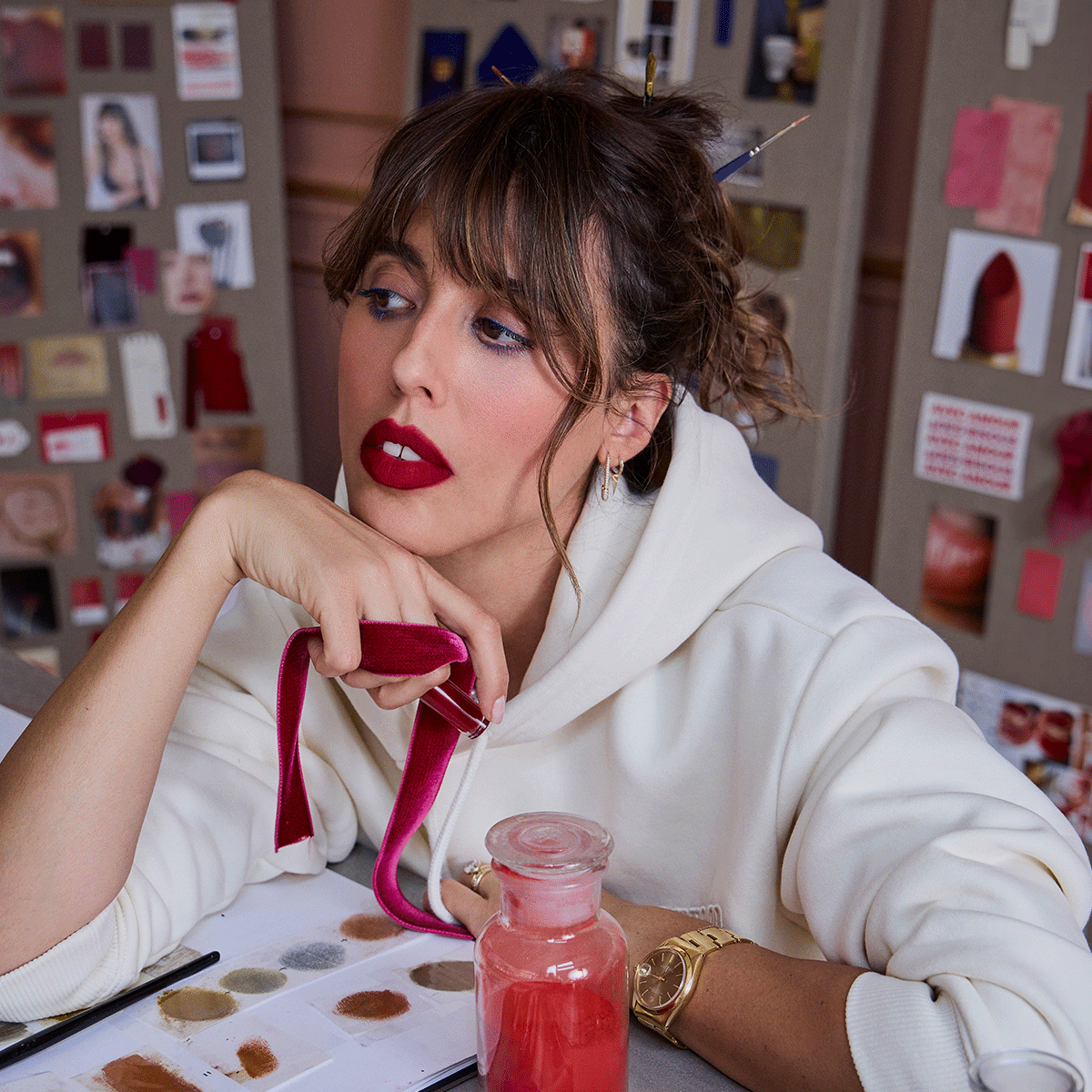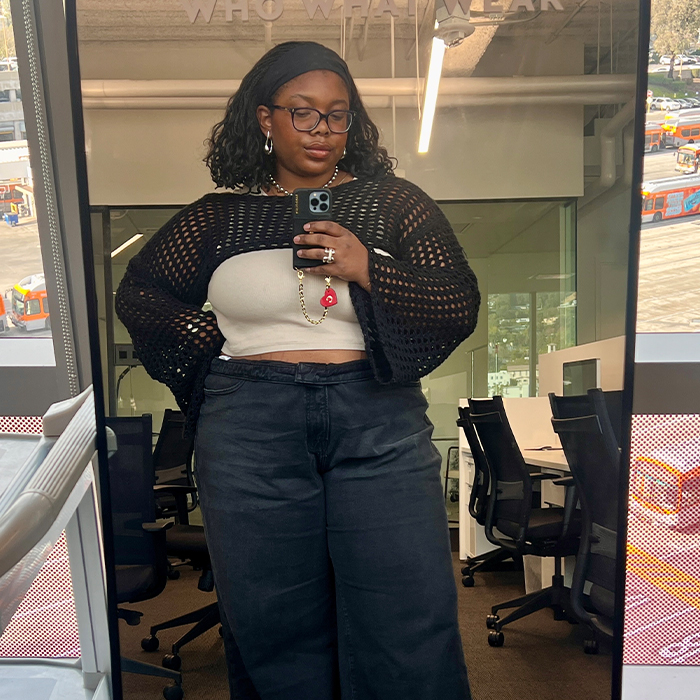I've Been Fighting for Inclusivity in Fashion for Years—Here's Who Supported Me
Chloé Pierre is the London-based entrepreneur, digital marketing expert, author and influencer who founded wellness platform Thy.self with the aim to diversify a space that hadn't previously resonated with her. Pierre's debut book, Take Care: The Black Women's Guide to Wellness, is now available for preorder ahead of its launch next year, and she's also well respected within the fashion and beauty industries for not only her spot-on looks and content but also her willingness to be outspoken on topics such as self-love and size inclusivity. Oh, and she's pregnant with her first child—so things are pretty busy right now for this multi-hyphenate! Here, in the first of her exclusive Who What Wear UK columns, she takes a moment to evaluate where fashion is at in 2021 and to celebrate the brands that have supported her journey. Welcome, Chloé.
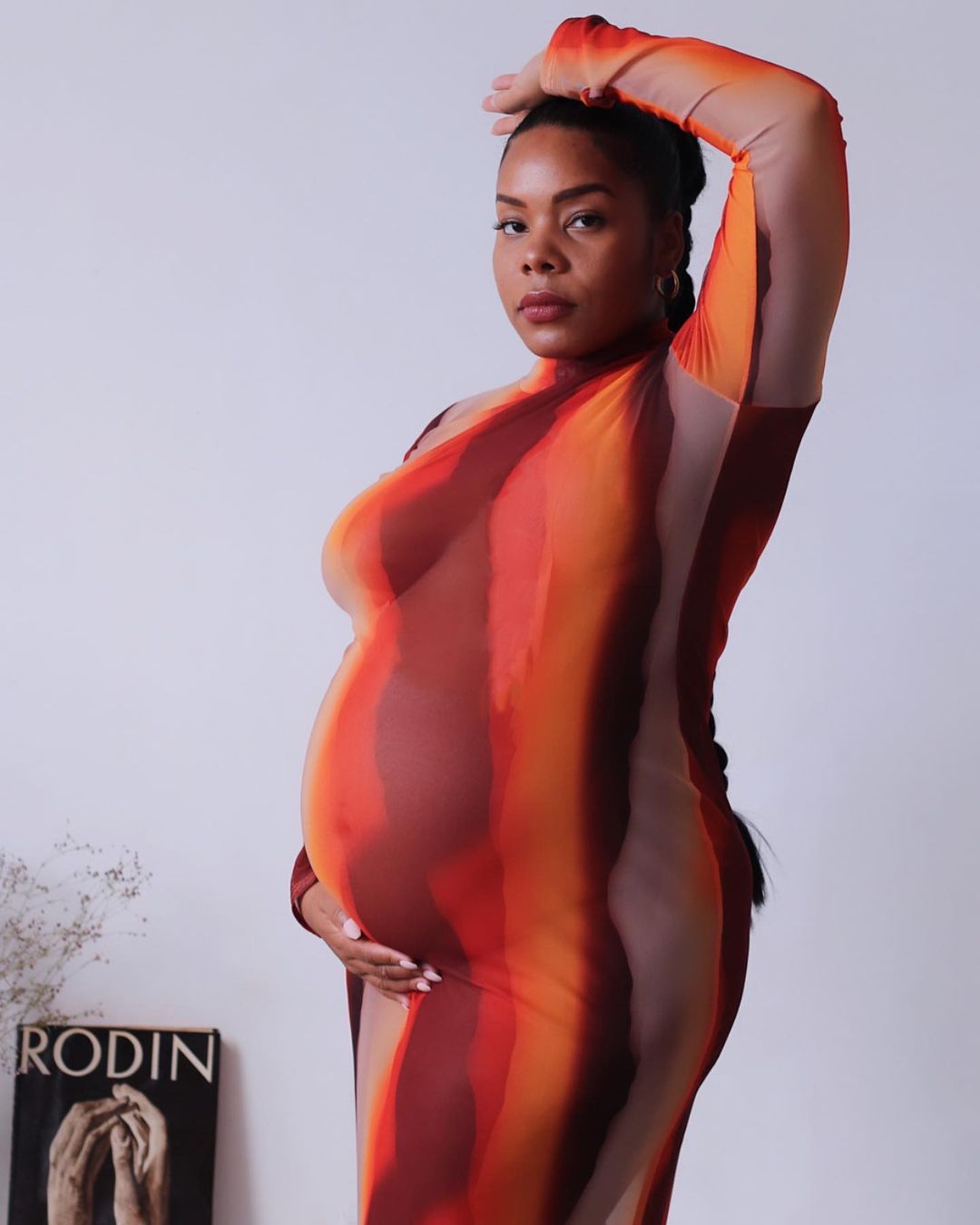
For the past 30-plus years, I have consumed fashion and content in a way many self-proclaimed fashionistas really couldn’t even dream of. I started my career interning at Agent Provocateur, where I could only dream of affording (and fitting into) a slither of the luxurious and seductive rails of gorgeous lingerie, let alone meet the Kate Moss, who was basically a brand ambassador at the time. I quickly moved through brands and agencies, working my way up, hoping to be "seen," recognised and appreciated for my opinion, which was, even back then, that campaigns should be more inclusive. All the while I never saw anyone remotely like me immortalised in a visual image. I wasn't represented or recognised in the creative fashion industry, whether that be on a cover, a runway, a press appointment, fashion websites, the boardroom, or worse, the fashion offices themselves. It almost felt like this would never change, and that feeling alone was damaging.
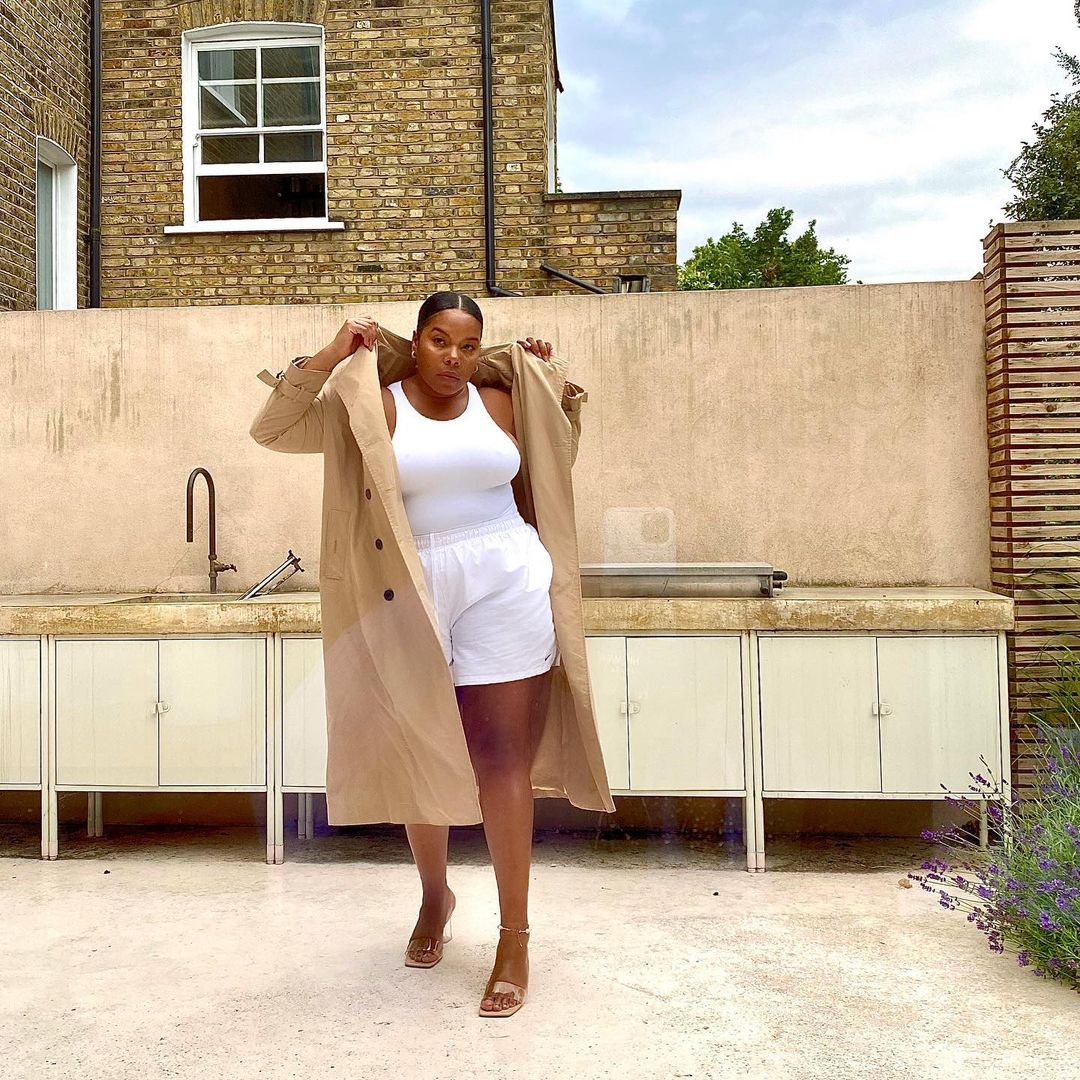
Then came the internet and, eventually, the voices of the others: the unapologetic images of fat, curvy, dark-skin, discoloured-skin iterations of women with different hair types and experiences to match who refused to be ignored. Not only was I empowered by this, but I couldn’t miss the chance to add my five pence to the conversation, especially as the British media and fashion houses still dragged their feet to give this movement any incline of approval whatsoever.
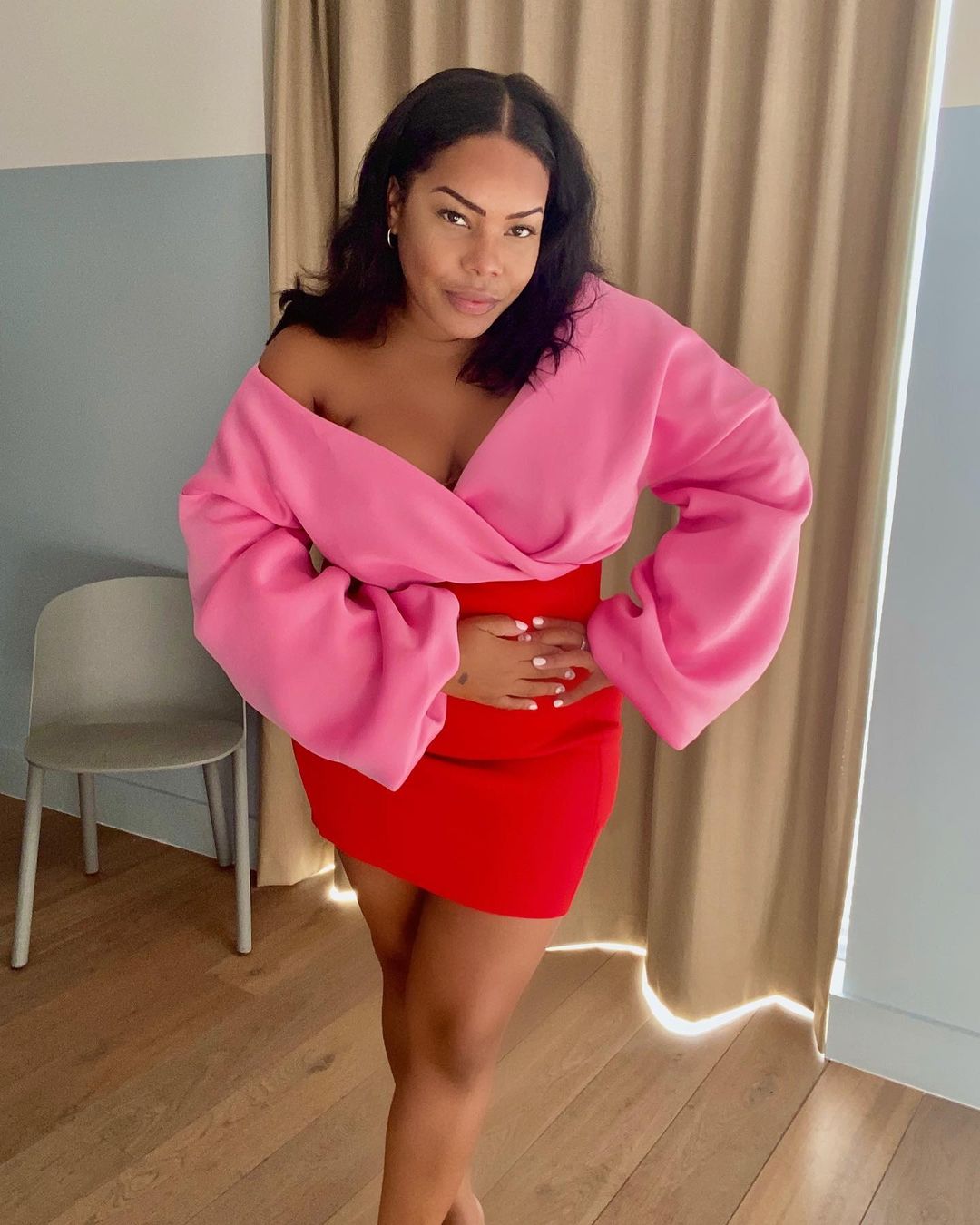
Yet today, I sit here at my home desk, with the world, my global network and my career quite literally at my fingertips, typing an article for a publication I only could have wished to be a part of all those years ago. I think it’s still quite an inconceivable thought for some, especially where I come from, that this bold, "different," Black woman, who also happens to be a plus-size Londoner from parts of London only deemed "cool" or "inhabitable" in the last eight years, is today writing a column about a marginalised perspective and experience of fashion for the world to see, read and, yes, consume in many ways—let alone be deemed as fashionable or popular.
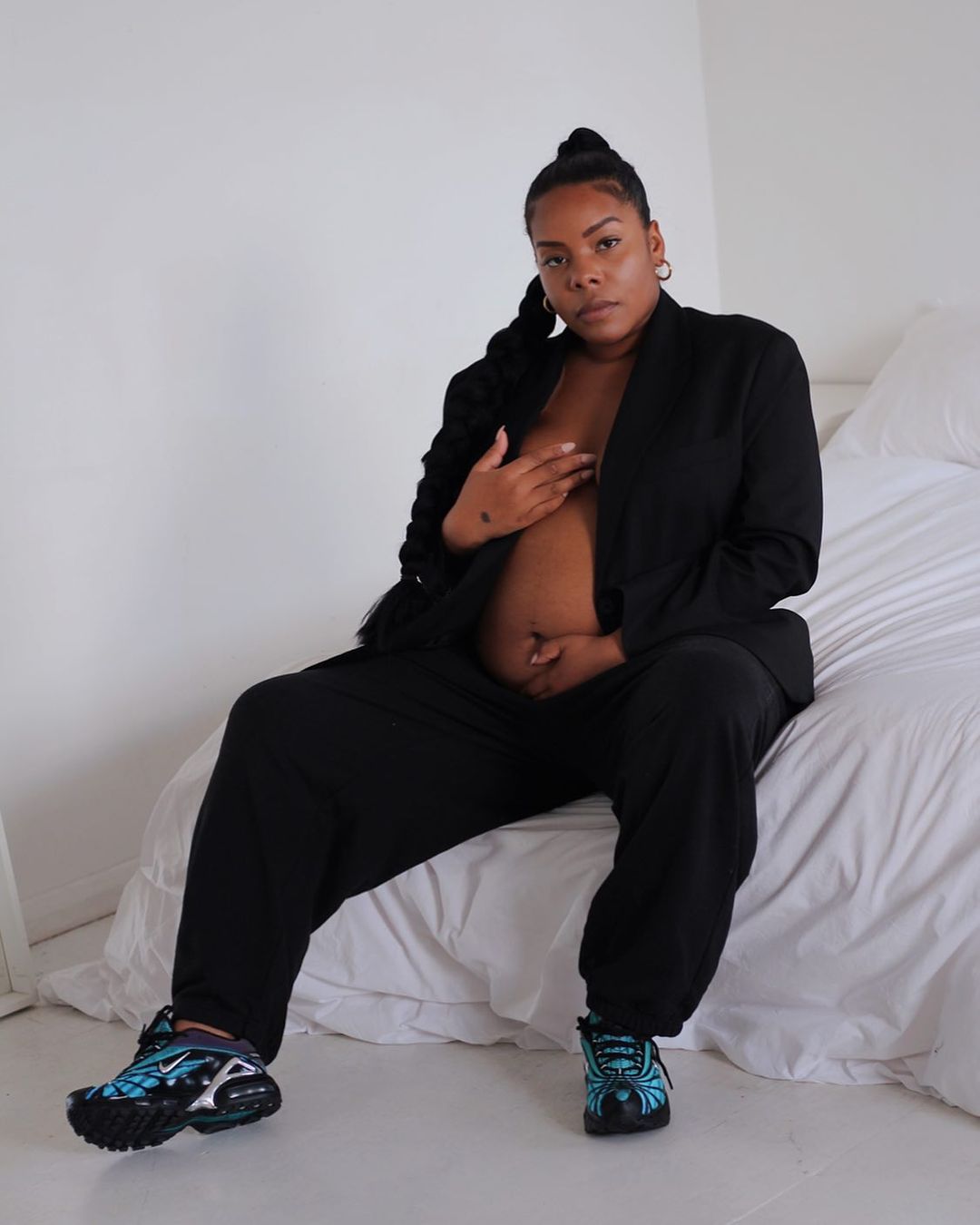
As if that weren't surprising enough, said female fashion enthusiast, also known as a digital entrepreneur should you search me on the internet (I think I’ve used the third person enough already—don’t you?), has found herself not only writing said column on Who What Wear UK, which I used to devour weekly in between press meetings as a young fashion PR professional, but also the recently announced author of a wellness book dedicated to Black women, the founder of digital wellness space Thy.self and also over seven months pregnant with my first offspring.
My career progression is in part due to the work of all those voices I mentioned previously and our tireless journey to push a movement some may have only begun to understand after last year's BLM movement—or Black Square Summer. (Thank you, Kelechi Okafor, for coining this term.) Sadly, it took the destructive end of multiple Black lives (such as those of the late George Floyd, Breonna Taylor and Tony McDade) through violence witnessed on social media for the world to finally see our pain and everyday lived experience.
How far we have come and how far we have yet to go.
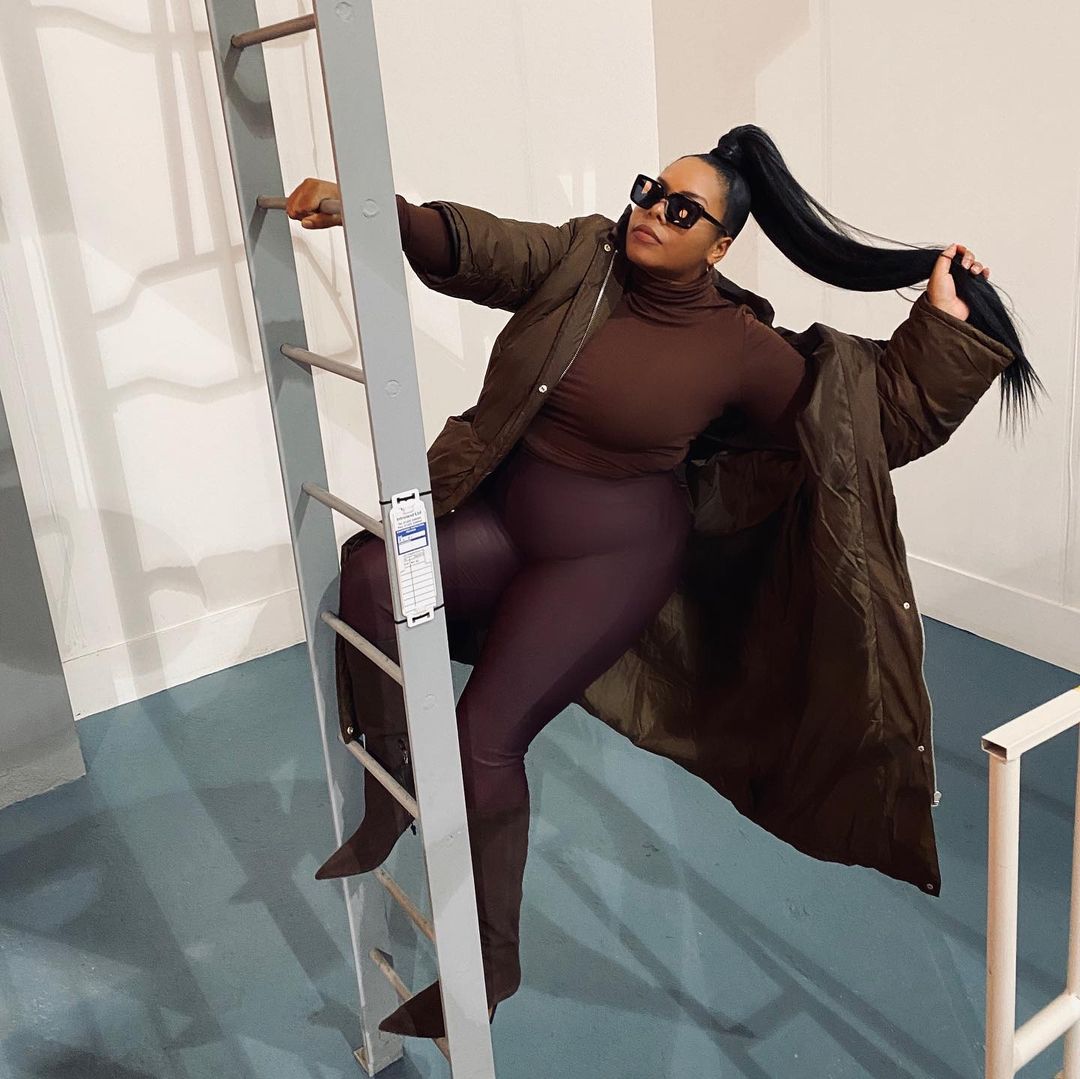
My belief has always been to make change you need to start with the places and industries you feel most passionate about. Fashion has always been this for me, and I cannot wait to push the inclusion movement further in my own little way, using this platform and with your support—every opening of your eyes or ears or with the literal click of a mouse.
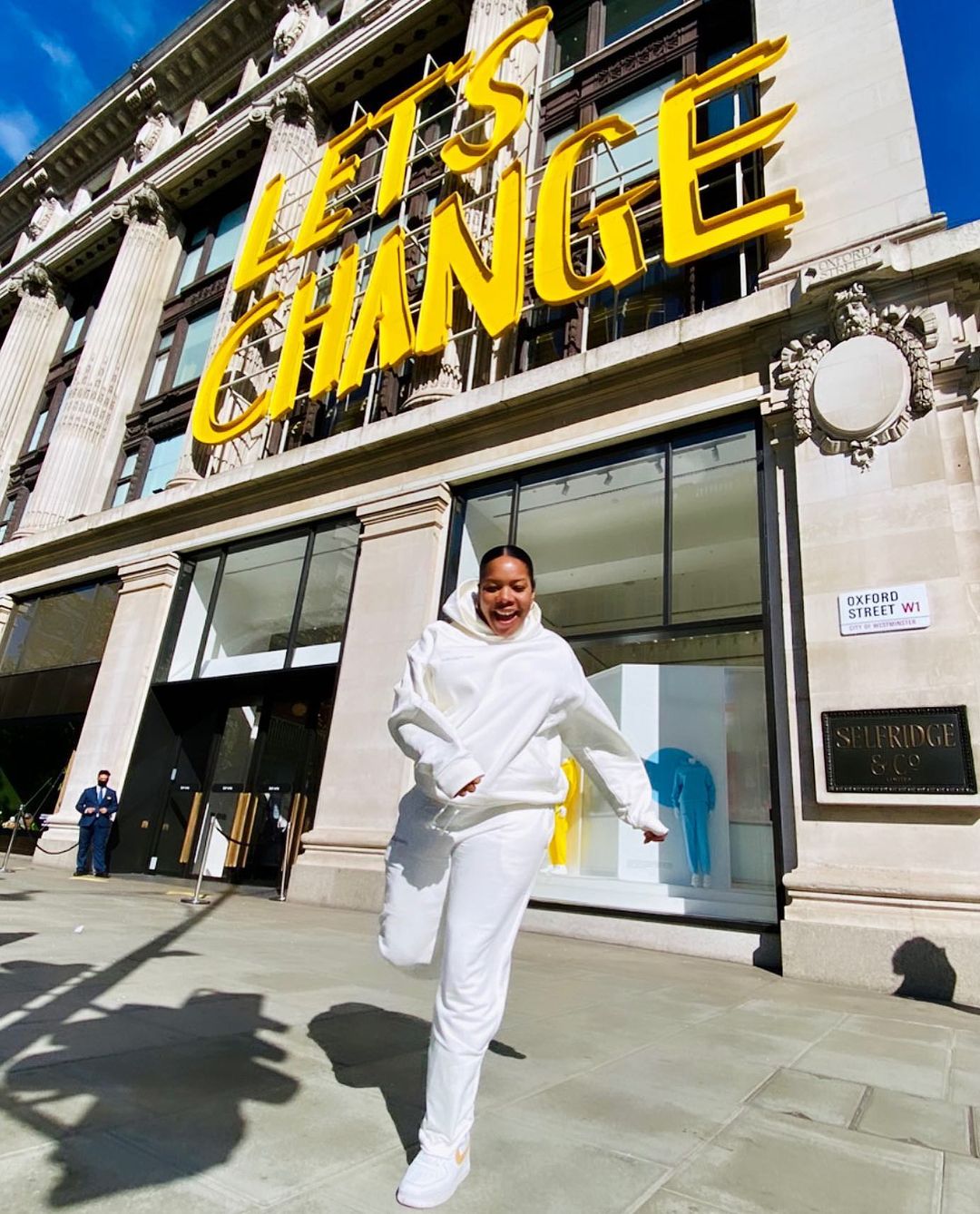
I often think about the quote from the character Miranda Priestly in the iconic film The Devil Wears Prada: "This 'stuff'? Oh. Okay. I see. You think this has nothing to do with you." But fashion is real. Fashion can be game-changing. It can be the catalyst for an open conversation around social matters YOU care about.
Fashion accounts for many dreams, livelihoods and the future as we see it. But how do you see the future? I see it being inclusive, and for me and many of you, it starts right here. Right now.
This column won't be about trends, but the focus will be on visually and commercially understanding inclusivity as it pertains to the fashion industry. Join me. And let's start with shining a light on some key brands that have been forward-thinking enough to support me on my journey so far…
1. ASOS
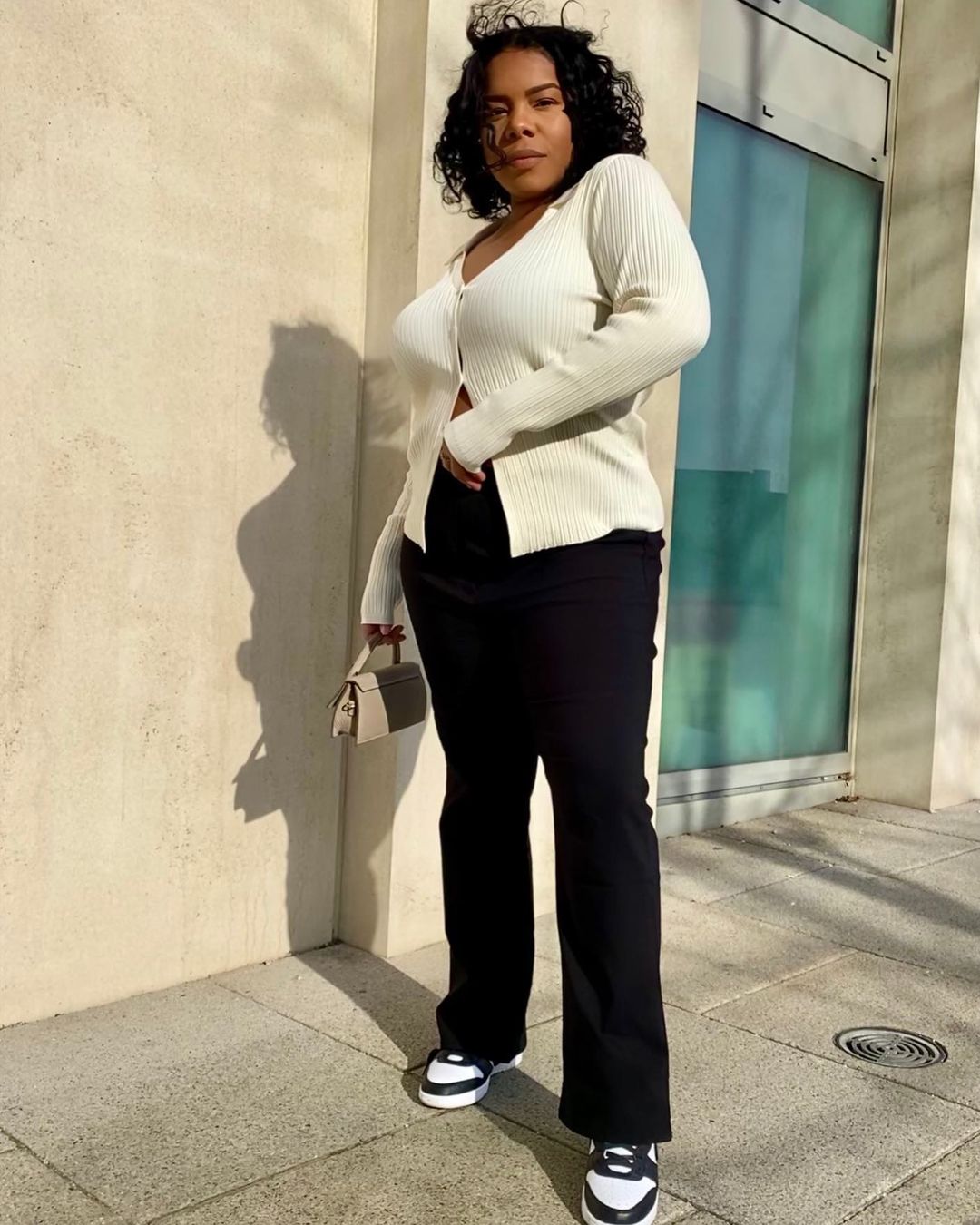
To this day, there is nothing quite like the ASOS Curve range. The brand's creations actually cater to the millennial and Gen Z audiences without draping us in unflattering fabrics and typical designs. At ASOS Curve, frumpy is just not an option, and waiting on delayed deliveries is nonexistent.
2. MONKI
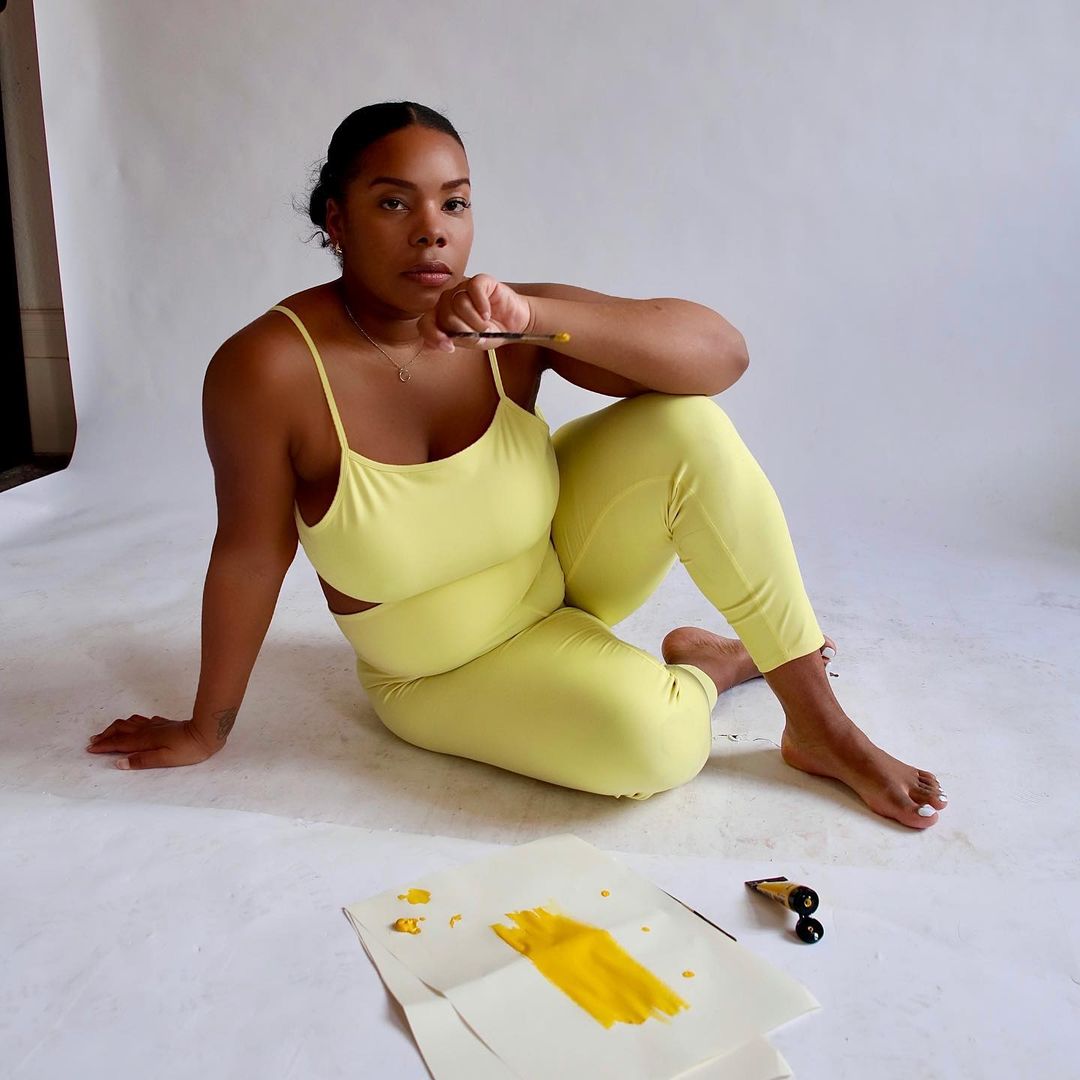
Monki, although not exactly a plus-size brand, not only offers many plus-size women a safe haven to shop its collections without fear of embarrassment but also encourages the fun aspect of fashion and makes pieces with form in mind so it’s naturally more inclusive.
3. NEVER FULLY DRESSED
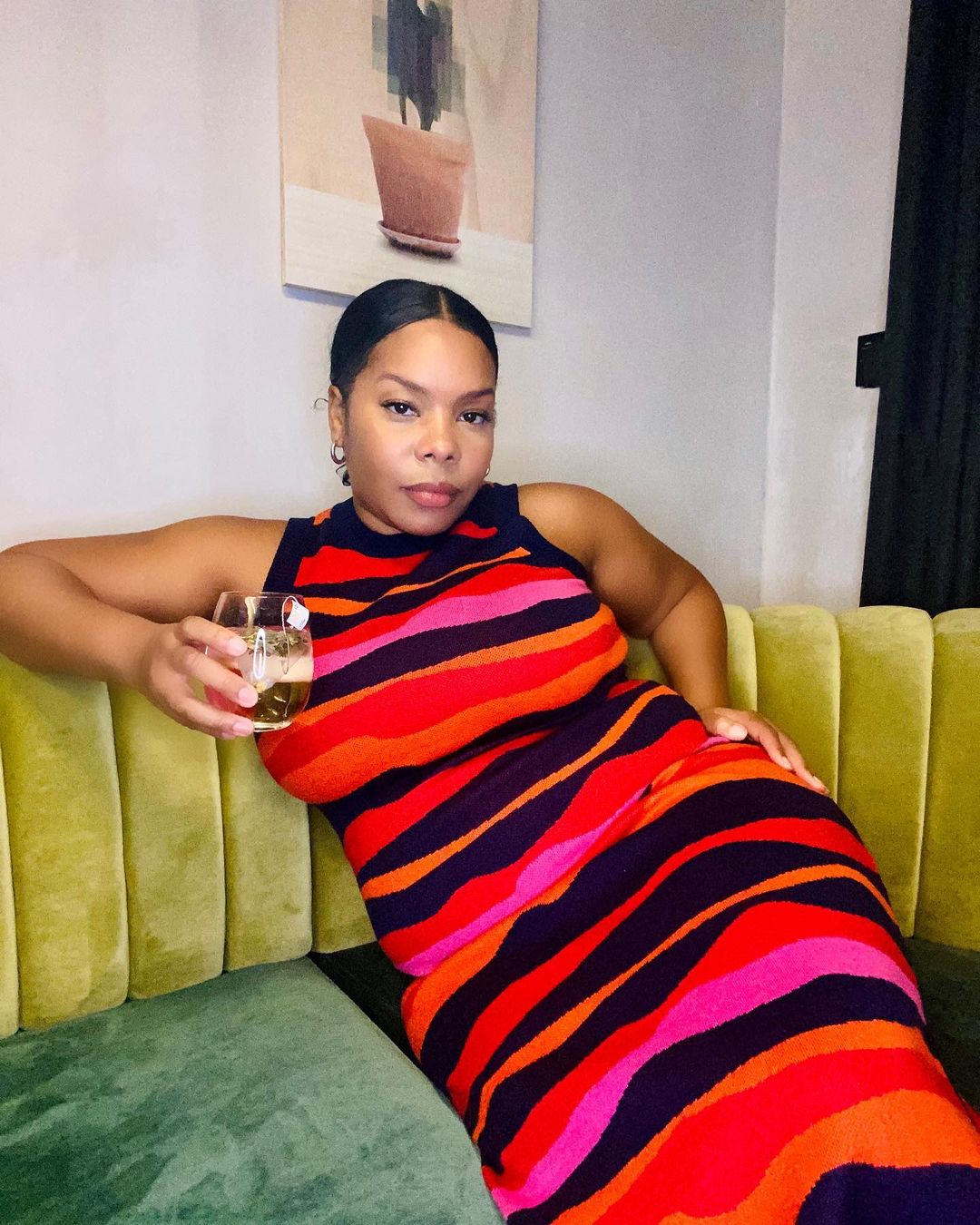
When I decided to turn my blog into a style blog (back in 2010) with limited supporting social media, I reached out to Never Fully Dressed. I had no experience in this field at all yet they sent me outfits to try and begin the journey. Years later, the brand has developed a curve collection and also focuses heavily on early motherhood with its products. I will never forget their passion as well as their kindness and belief in me.
4. NAVABI
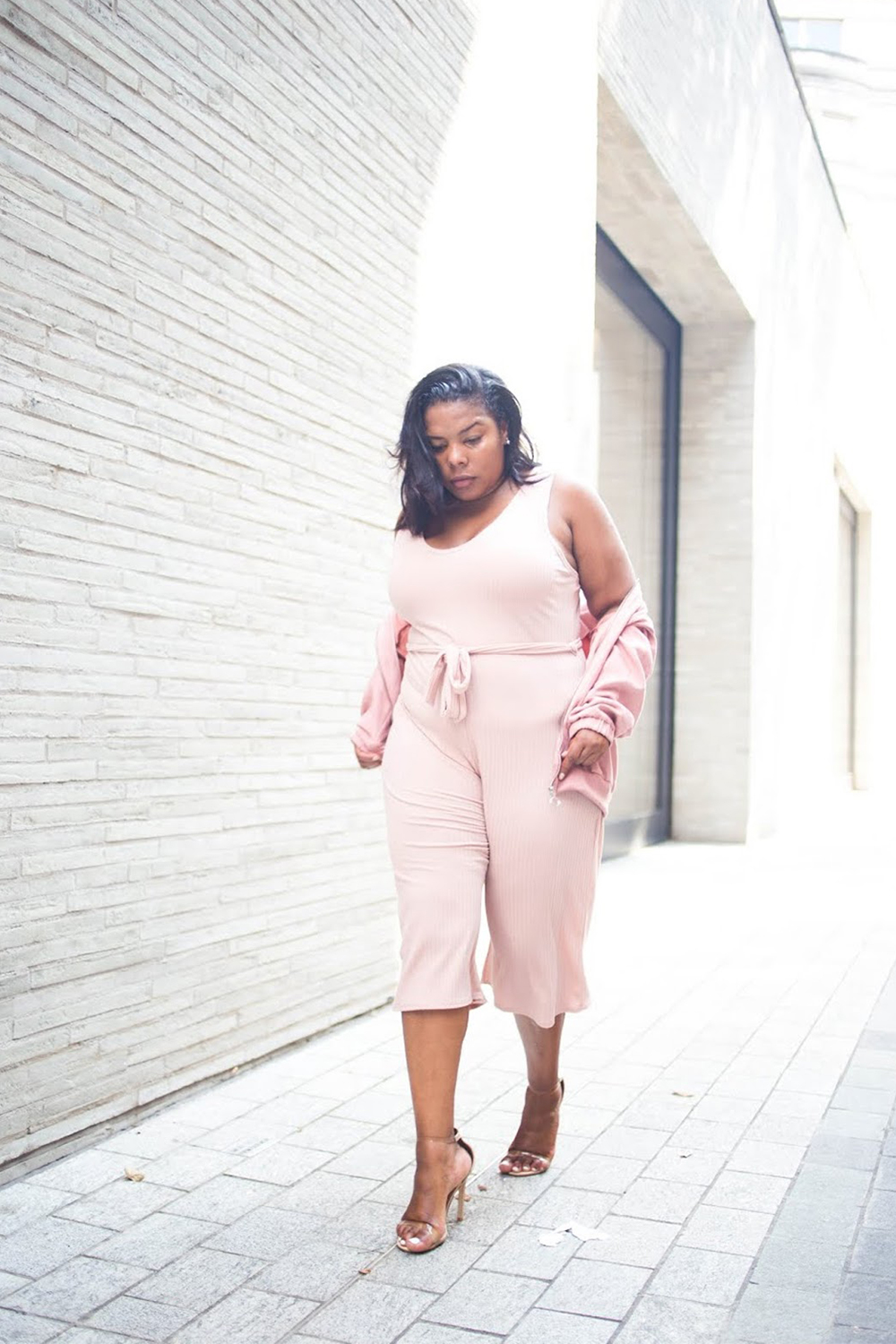
Shopping trend-led, plus-size luxury fashion is still as much a monolith today as it was 10 years ago. I’m grateful to Navabi for giving the plus-size community access to luxury fashion and for hoisting a platform that also gave the industry a voice—something that still needs to be continued today.
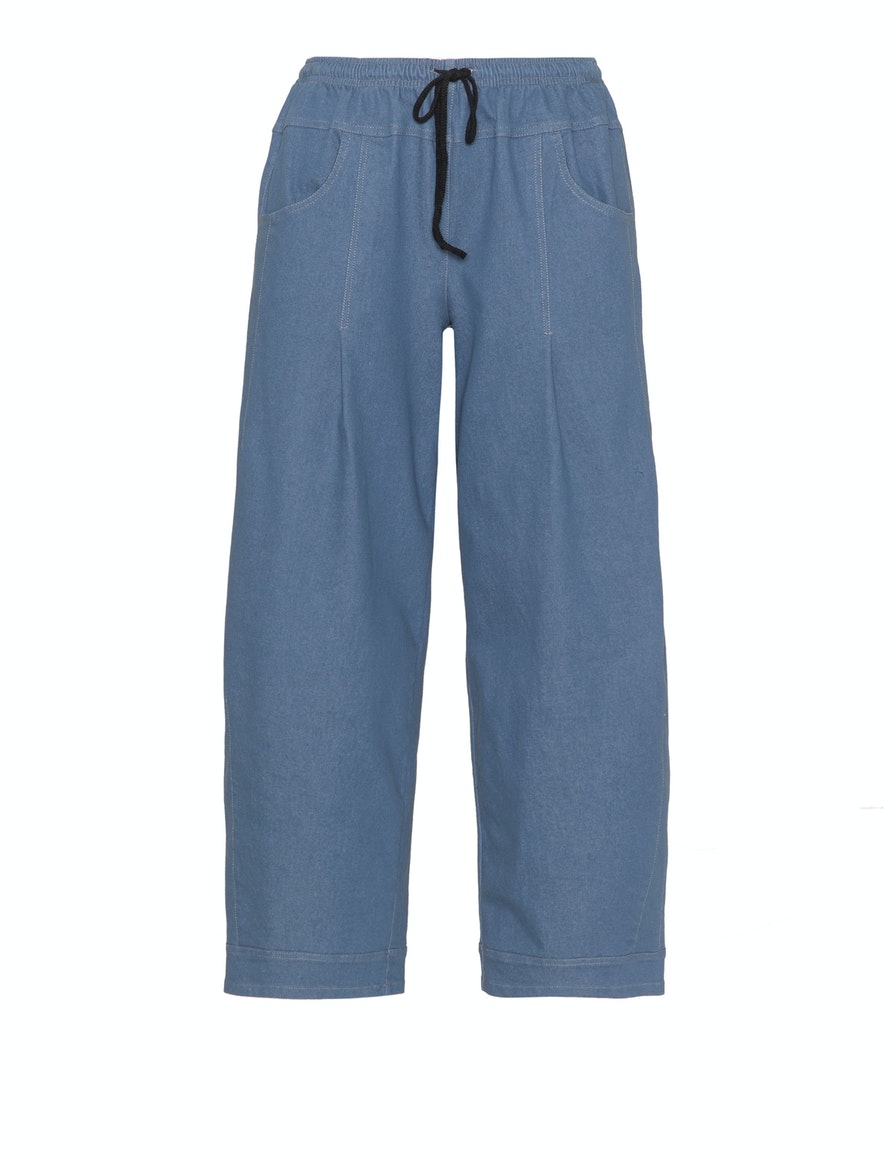
Next up, your guide to the major autumn 2021 trends.
